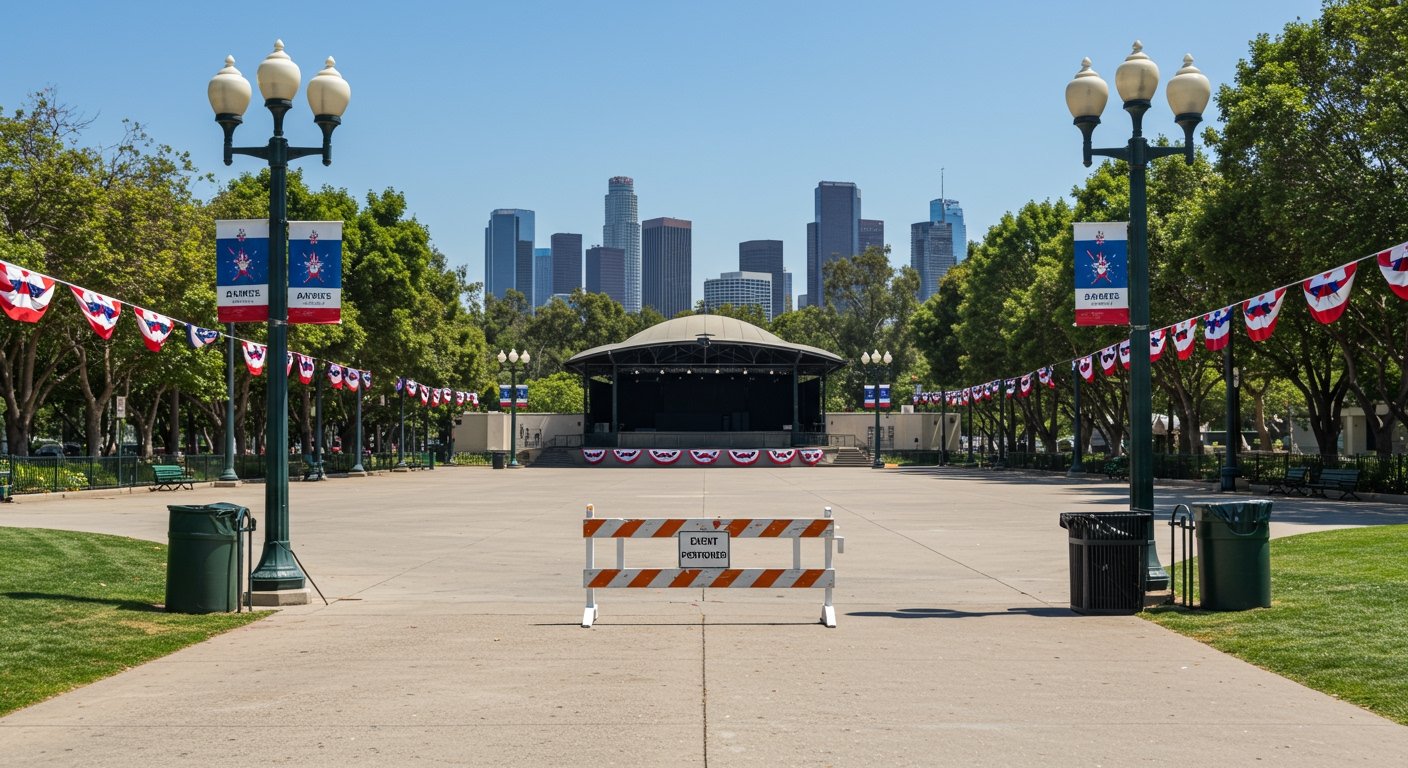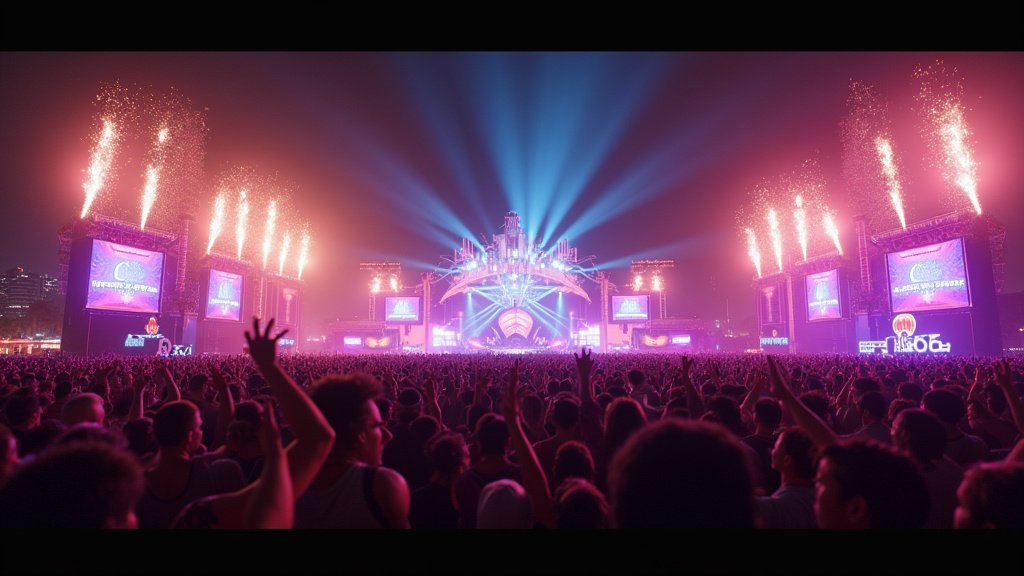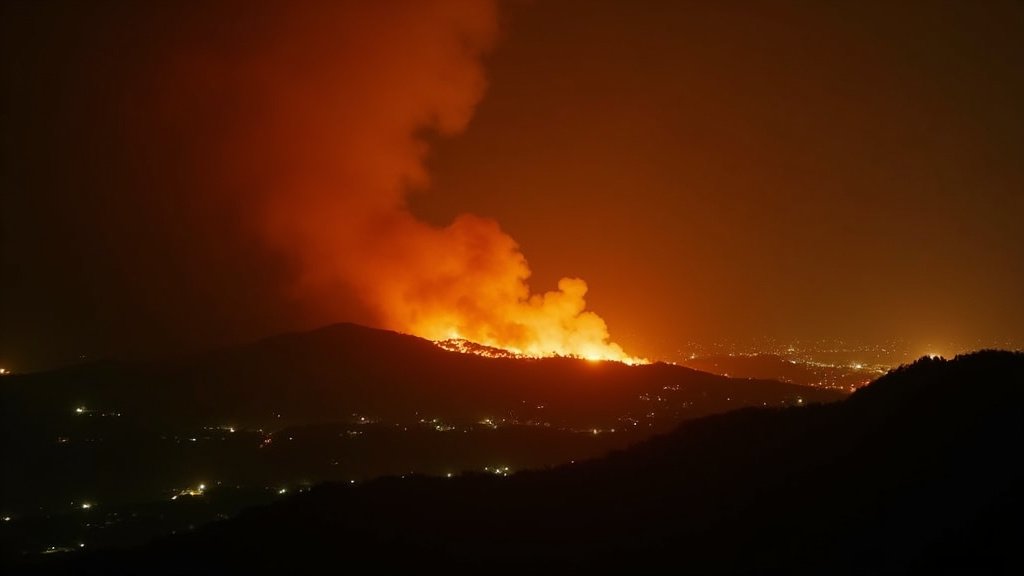LOS ANGELES – Numerous Fourth of July celebrations across the vast Los Angeles area have been abruptly canceled or rescheduled, as organizers cite concerns over public safety amidst intensified federal immigration enforcement activities. The decision impacts a range of popular community gatherings, from large-scale block parties to local parades and concerts, traditionally hallmarks of the Independence Day holiday.
Widespread Cancellations and Postponements
The list of affected events is substantial, reflecting a widespread hesitancy among organizers to proceed with large public assemblies. Among the most significant postponements is the Gloria Molina Grand Park Summer Block Party in downtown Los Angeles. This event, a major draw that attracted over 20,000 people in 2024, has been postponed indefinitely. Organizers publicly stated the decision was made out of an “abundance of caution” for public safety.
Other events facing delays include a planned summer movie and concert series located in Rowland Heights, the city of Cudahy’s Independence Day Celebration, and a Fourth of July event slated for Huntington Park. These postponements signal a cautious approach by local authorities and event planners in response to the prevailing climate.
The cancellations are equally impactful, removing long-standing traditions from the holiday calendar for several communities. The East Los Angeles Rockin’ 4th of July celebration will not take place. Similarly, the Fourth of July Freedom Walk in Whittier’s Palm Park has been called off. The Independence Day celebration in Bell Gardens is also canceled.
Notably, the El Sereno Bicentennial Committee’s 66th Annual Independence Day Parade, a historic event that typically featured over 1,200 participants, has been canceled this year. The absence of such a large, traditional parade highlights the depth of the concerns leading to these decisions.
Organizers Cite Safety Amid Enforcement
While many organizers did not explicitly name Immigration and Customs Enforcement (ICE) in their public statements, they broadly referred to concerns for resident safety and the ongoing federal immigration enforcement activities as the primary reasons for their decisions. This language suggests a direct link between increased enforcement actions and the perceived risk to attendees at public gatherings.
The atmosphere of uncertainty and potential enforcement operations has apparently created an environment where hosting large community events on a significant national holiday was deemed too risky by multiple organizing bodies across the region.
Context of Federal Immigration Activities
The backdrop to these concerns is a demonstrable increase in federal immigration enforcement presence and activity in the Los Angeles area. According to data released by the Department of Homeland Security, ICE has arrested over 1,615 individuals in Los Angeles since the beginning of June alone.
This figure underscores the scale of recent enforcement operations. The situation has also involved the deployment of significant federal resources, including approximately 4,000 National Guard members and 700 Marines, according to the same information. While the specific roles of these deployed personnel in relation to civilian events are not detailed in organizers’ statements, their presence is part of the broader context of heightened federal activity that appears to be influencing local decisions regarding public gatherings.
Impact on Communities
The wave of cancellations and postponements represents a significant disruption for Los Angeles-area communities. Fourth of July events are often cornerstones of neighborhood life, providing opportunities for families and neighbors to gather, celebrate, and express national pride. The absence of these events can lead to disappointment and a sense of lost tradition.
For many, these celebrations are accessible, free, and inclusive ways to participate in civic life. Their cancellation underscores the far-reaching impact of federal policies and enforcement actions on local social and cultural landscapes.
Conclusion
The decision by multiple event organizers to cancel or postpone Fourth of July celebrations across the Los Angeles area, citing safety concerns amid ongoing federal immigration enforcement activities, highlights the complex intersection of national policy and local community life. With over a dozen events affected and thousands of potential attendees impacted, the cancellations serve as a visible manifestation of the tensions surrounding current enforcement strategies in one of the nation’s largest metropolitan areas. The focus remains on ensuring public safety, even as traditional holiday festivities are curtailed.





